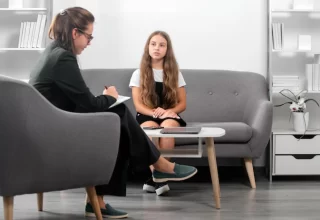Signs And Treatment Of Postpartum Depression
Postpartum depression is a mental health condition and a type of postpartum mood disorder that happens to some women after giving birth. About one out of seven mothers experience this type of depression, usually characterized by anxiety, fatigue, and frequent crying.
It’s easy to mistake postpartum depression with baby blues because they have similar symptoms. However, the former is more serious and requires help from a healthcare provider.
A considerable percentage of mums experience baby blues after giving birth. As mentioned, the symptoms are similar to postpartum depression, such as anxiety, sadness, and crying for no specific reason. But these symptoms eventually subside after a couple of weeks without medication or treatment, although support from loved ones would help get through this phase.
Postpartum depression can be mild or severe, and you may see the symptoms on the first week of delivery or even after a year. Your healthcare provider can diagnose if you have postpartum depression and help create the best treatment plan.
If you experience any of the symptoms below, notify your healthcare provider immediately:
- Loss of interest in most activities.
- Difficulty concentrating or doing regular tasks.
- Feeling worthless, hopeless, guilty, and anxious.
- Feeling depressed every day for more than a couple of weeks.
- Repetitive thoughts of suicide.
- Thinking of harming the baby or yourself.
Your healthcare provider may do various tests and screen you for depression. He may ask different questions to determine if it’s baby blues or postpartum depression. So, be sure to answer honestly to get an accurate diagnosis.
The treatment varies depending on severity, but it usually includes psychotherapy, taking anti-depressants, and joining a support group.
You May Also Check: What Is Inclusive Mental Health Care?
Anti-Depressant Medicines

Various anti-depressant medicines are available, and most are safe even for breastfeeding mums. The healthcare provider will prescribe the proper medication suitable for your condition. These medications work by balancing the brain chemicals that affect the mood.
These medicines include tricyclic anti-depressants, bupropion, serotonin, and norepinephrine reuptake inhibitors. Hemp flower may also help manage depression as it is believed to have a potential calming effect without the high. It’s widely used in the UK, so you may want to check with your healthcare provider about its use.
Psychotherapy

A trained and licensed mental health provider can help in treating postpartum depression. You will have regular sessions where you will talk about things that could help you understand better about your condition.
The provider will also help you find ways to manage your emotions and cope with the situation to function properly. A combination of psychotherapy and medication may also work better for you.
Support Group

There are support groups for new parents that you can join. It will help you feel better to share your thoughts and feelings and make you feel less lonely as you know that others are on the same journey as you. Talk to friends and loved ones who would listen to your concerns.
Do not think twice about getting help if you experience any signs of postpartum depression. Your healthcare provider can help determine the treatment to manage these symptoms and prevent them from worsening.
Read Also:
- 6 Lifestyle Changes for Mental Health
- How Can Organizations Support Their Employees’ Mental Health?
- 6 Easy Ways That You Can Protect and Improve Your Mental Health



